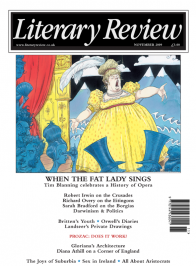Christopher Bigsby
All The Luck
Presence: Collected Stories
By Arthur Miller
Bloomsbury 389pp £25
When he left university in 1938, Arthur Miller wanted to be a writer. As he sat working in his parents’ Brooklyn cellar, his preference was for drama, and he tried to place his plays with Broadway producers. When that failed, he turned his hand to fiction, writing a novel (never published) that attacked American racism and a series of highly original stories, rejected by the major magazines for their modernist approach and scatological content. What would be his first Broadway play, The Man Who Had All the Luck, existed first as a draft novel and, when the 1944 premiere proved a disaster (it closed after three days), he returned to fiction, publishing Focus. It sold 90,000 copies and was his first success. He could well have continued down that path had he not decided to have one further go at drama. The result was All My Sons and his career as a dramatist was launched, but he never abandoned fiction, even though he later recalled that whenever he read novels he found himself drawn to the dialogue, riffling through the pages in search of the next dramatic exchange.
In the introduction to his first collection of stories, published in 1966 (and reproduced in Presence), Miller explained that nonetheless he himself found dialogue difficult in the context of short stories. He could never quite get the idea of an actor reading it out of his mind. It

Sign Up to our newsletter
Receive free articles, highlights from the archive, news, details of prizes, and much more.@Lit_Review
Follow Literary Review on Twitter
Twitter Feed
The era of dollar dominance might be coming to an end. But if not the dollar, which currency will be the backbone of the global economic system?
@HowardJDavies weighs up the alternatives.
Howard Davies - Greenbacks Down, First Editions Up
Howard Davies: Greenbacks Down, First Editions Up - Our Dollar, Your Problem: An Insider’s View of Seven Turbulent...
literaryreview.co.uk
Johannes Gutenberg cut corners at every turn when putting together his bible. How, then, did his creation achieve such renown?
@JosephHone_ investigates.
Joseph Hone - Start the Presses!
Joseph Hone: Start the Presses! - Johannes Gutenberg: A Biography in Books by Eric Marshall White
literaryreview.co.uk
Convinced of her own brilliance, Gertrude Stein wished to be ‘as popular as Gilbert and Sullivan’ and laboured tirelessly to ensure that her celebrity would outlive her.
@sophieolive examines the real Stein.
Sophie Oliver - The Once & Future Genius
Sophie Oliver: The Once & Future Genius - Gertrude Stein: An Afterlife by Francesca Wade
literaryreview.co.uk